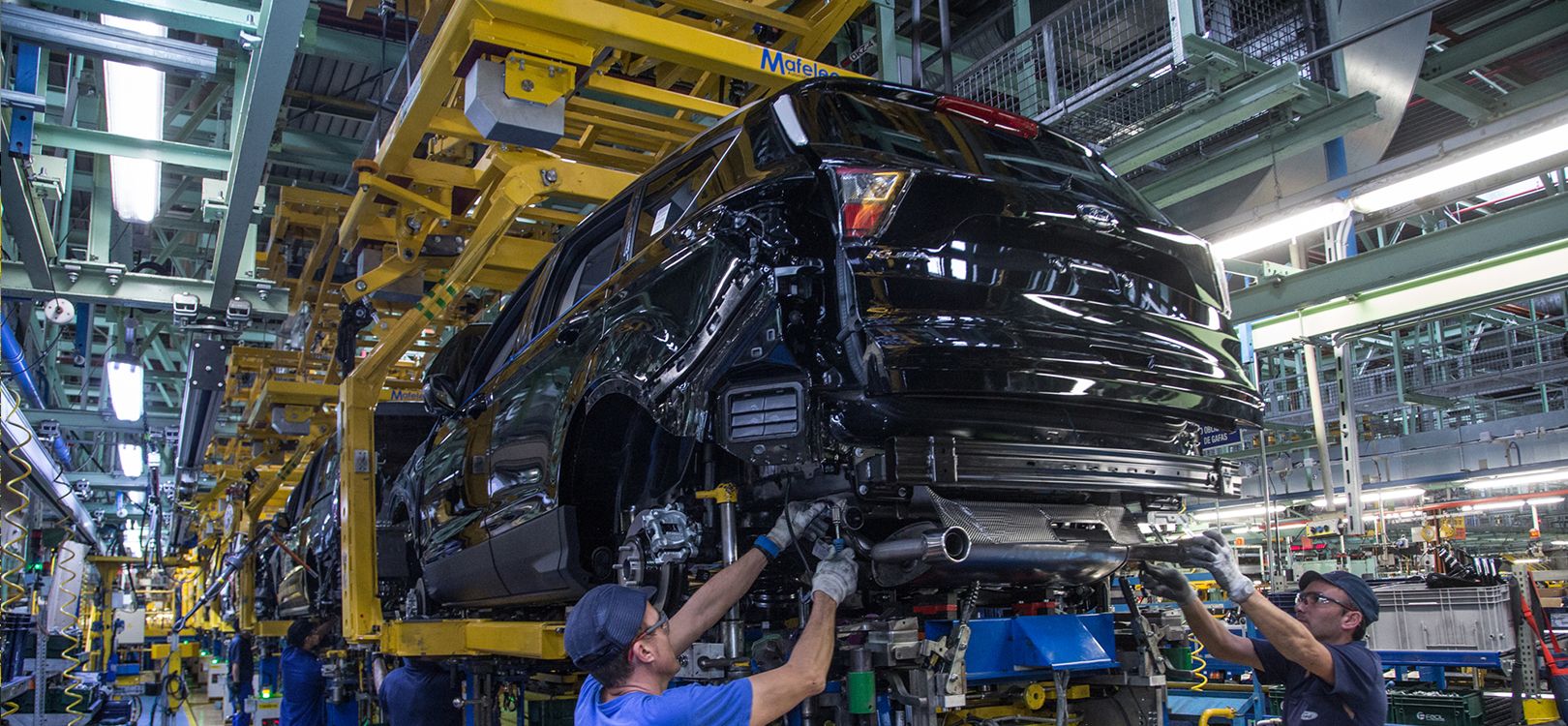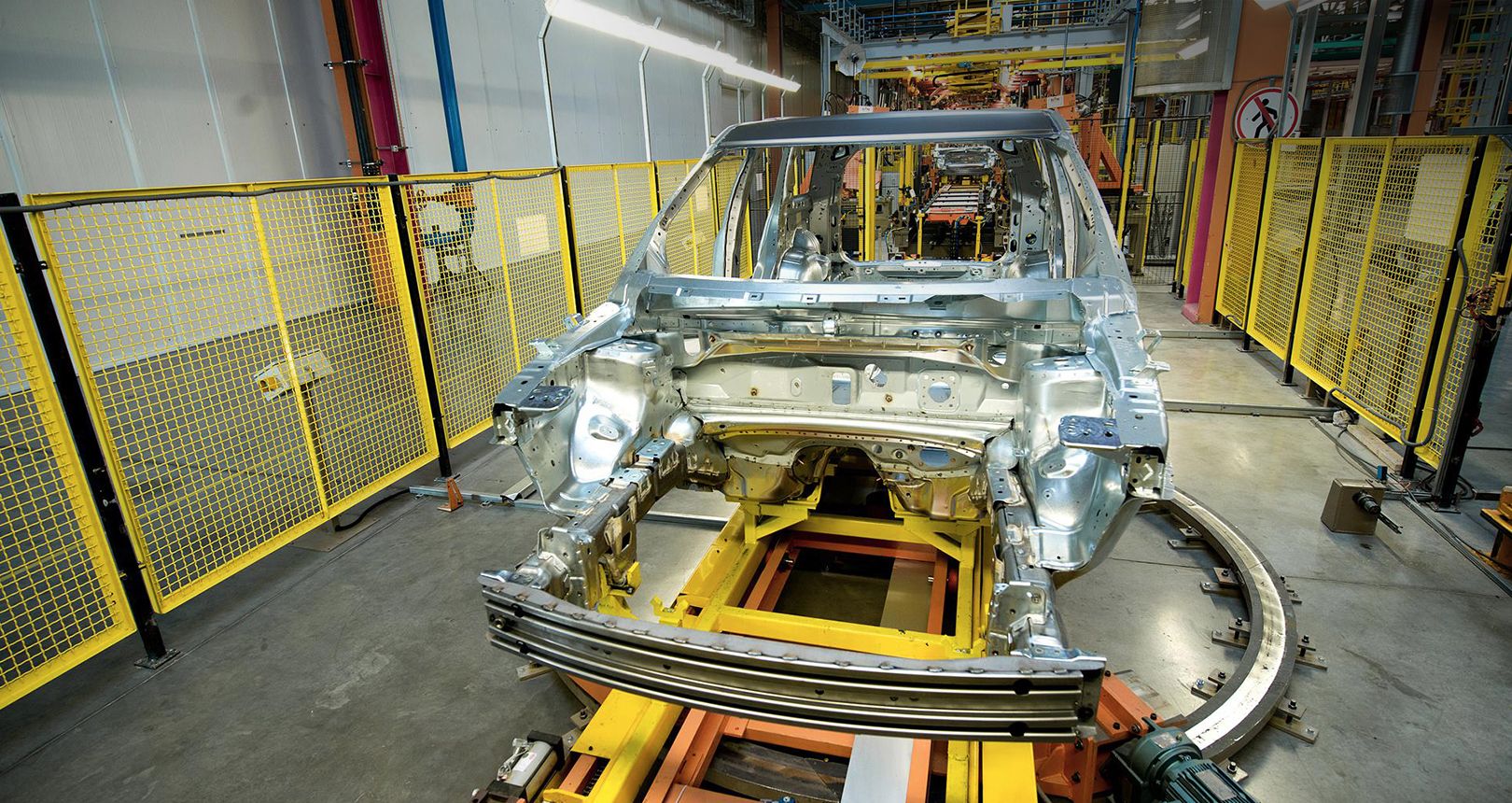Responsible Sourcing of Raw Materials
With approximately 1,200 Tier 1 production suppliers providing up to 40,000 parts per vehicle with 1,000 different materials in those parts, Ford recognizes that our material supply chain is complex. Moreover, the responsible sourcing of raw materials was identified as one of the most important issues in our recent human rights assessment.
We are committed to ensuring that the materials that go into our vehicles have been sourced responsibly, and are working on multiple initiatives to increase transparency and responsibility in raw material sourcing. We participate in studies, workgroups and industry/cross-industry collaborative discussions – such as our membership of, and leadership in, the Responsible Minerals Initiative Steering Committee, where we work to identify key ethical, environmental and labor issues impacting the raw material supply chain.
We are one of several automotive manufacturers obliged to report on conflict minerals in our supply chains in a Specialized Disclosure report, filed annually with the SEC. Ford’s Conflict Mineral Report was ranked as the highest-scoring auto manufacturer in the Mining the Disclosures 2017 report produced by the Responsible Sourcing Network. In 2017, we were also included, for the third consecutive year, in the Top 100 Conflict Minerals Influence Leaders by Assent.
In 2017, Drive Sustainability, a partnership between Ford and other leading automotive companies, and the Automotive Industry Action Group (AIAG) expanded the Automotive Industry Guiding Principles to Enhance Sustainability Performance in the Supply Chain. The organizations also launched the newly established Practical Guidance Documents. These documents now include supplier expectations for responsible sourcing of materials to increase awareness and consistency in the automotive supply chain.
Putting Supply Chain Issues in the Observatory
Drive Sustainability, a partnership between Ford and other leading automotive companies, is launching a Raw Materials Observatory to address key ethical, environmental and labor rights issues along the automotive supply chain. The initiative will also help industry suppliers to improve performance while reducing both risks and their environmental footprint.
The observatory will work by assessing the risks posed by the automotive sector’s key raw materials, such as rubber, cobalt, mica and leather, and identifying the best ways of addressing the environmental, human and ethical issues within the supply chain. The Dragonfly Initiative, a specialized sustainability advisory firm, will conduct the risk assessments. Once initial results are known, an action plan to tackle issues will be developed.
“This is a perfect opportunity for an integrated approach amongst auto companies to come together and share a common platform for how we look at some of the very important aspects of sustainability, like working conditions and our collective environmental footprint.”

Supply Chain Transparency
We work with our suppliers to build their capacity and ensure transparency in our sourcing. For materials of concern, such as tin, tantalum, tungsten, gold, cobalt, mica, rubber and others, suppliers may be requested to support initiatives to improve due diligence and increase transparency. They may also be requested to provide information to verify that the materials in the products supplied to Ford have been sourced responsibly.
Since 2003, we have conducted more than 1,075 third-party external supplier audits and more than 1,400 follow-up assessments globally across commodities.
In 2016, we became the first automaker to join the Responsible Business Alliance (RBA) (formerly the Electronics Industry Citizenship Coalition), furthering our efforts to implement best practice and cross-industry collaboration. As part of our RBA membership, we adopted the Validated Audit Protocol (VAP), and in 2017, we conducted 27 new audits using VAP, covering a broad range of suppliers.
Through direct engagement, our 2016 auditees (the most recent data available) improved their raw audit score by an average of 45 points between the initial and the closure audits, reinforcing supplier commitment to improvement working conditions.
Expanding Our Reach
In late 2017, we introduced an additional initiative to increase supply chain transparency with the launch of an automotive Sustainability Self-Assessment Questionnaire (SAQ) developed by Drive Sustainability. Over 500 supplier sites around the world received the request to complete the SAQ, which is aligned with the AIAG and Drive Sustainability guiding principles.


